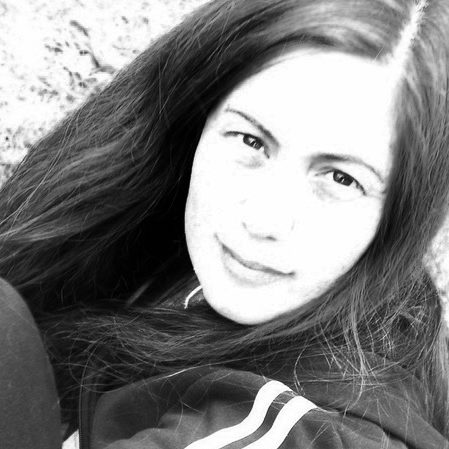Â
He’s into rap, hip-hop, reggae — and religion. He’s not a Christian rocker; he’s a Chasidic reggae/hip-hop musician.
Matisyahu is the artist formerly known as Mathew Miller — until he found God, Lubavitch-style, almost five years ago.
The 25-year-old certainly beats to his own drummer. Over the last several years he’s played packed houses, garnering a following with Jews and non-Jews. He’s a regular on the New York club circuit, and always takes to the stage in the requisite black suit and white shirt. And he gets his groove on with a kippah on his head and his tzitzit flying.
On April 10, Matisyahu will work his magic in Los Angeles at a sold-out concert at the University of Judaism.
There are a handful of Orthodox musicians who use their Judaism in their lyrics, but Matisyahu seems to be one of the few who has managed to appeal to both Jewish and secular audiences. After Matisyahu performed at a secular nightclub in Iowa in January, an online magazine review said, “The crowd responded equally to his religious and secular utterances. Matisyahu certainly made converts of a few from the crowd, but whether it was to reggae or to Judaism is impossible to say.”
Matisyahu doesn’t appear to find anything incongruous about his hip-hop Chasidism. The soft-spoken young artist said it’s what has made him so successful.
“There’s never really been a religious Jewish voice that modern-day Jews and non-Jews alike can relate to,” he said.
The Lubavitch-style tradition, he said, is something others who have taken the same path can connect with: the heritage, the religion. “While this is the focal point of my life, at the same time I’m still a person that grew up with American culture and listening to American music, and I combine the two.”
The lyrics used in traditional reggae music, he says, originate from the same place as his own work: the Torah. “The Rastafarians base a lot of their on the Psalms and King David.”
In “King Without A Crown” Matisyahu sings:
What’s this feeling?
My love will rip a hole in the ceiling
Givin’ myself to you from the essence of my being
Sing to my God all these songs of love and healing
Want moshiach now so it’s time we start revealing
Many of his other songs speak of the yearning to connect with God and change the world. “Having one God is not just a Jewish concept,” he said. “Everyone can connect with that.”
While growing up, Matisyahu was heavily into all forms of alternative music, particularly reggae.
“A person’s life is in phases,” he said. “When you go through a new phase, you don’t kill the old you or forget who you were or where you came from.”
Mathew Miller came from White Plains, N.Y., where he grew up in a traditional Jewish household. His main Jewish education was twice-weekly Hebrew school classes, for which he came close to being expelled because of his disruptive influence.
A restless teenager with little interest in his studies, he turned to music, finding solace in beat-box rhythms, hip-hop and reggae.
Like many youth searching for something, Miller’s journey from Matthew to Matisyahu was an evolution and included a life-altering 11th-grade trip to Colorado, where the vast landscape made him realize there was a God.
Nonetheless, he dropped out of high school, turned to drugs and alcohol, and drifted aimlessly. But a trip to Jerusalem, and a chance Shabbat evening service at the Carlebach Shul on New York’s Upper West Side, eventually put Matisyahu onto the path he now treads today. He calls Crown Heights home.
The Chasidic melodies, raucous singing and the flower-power vibe of Reb Shlomo Carlebach’s legacy, helped Matisyahu delve deeper into both his musical and Jewish soul, ultimately finding peace, solace and meaning in his life in the Lubavitch world.
Today he focuses on spreading the message of the late Lubavitcher Rebbe — with his music. “He said we’re supposed to take the things that we do and tell the world about the moshiach, and about God.”
At his concerts, he uses psalms, quotes from the Torah and anything else to fulfill the commandment to be “a light unto the nations” — albeit with a heavy Jamaican tone.
How does he reconcile Orthodox Judaism with performing on stage — particularly when he himself has said he has to avert his eyes at some clubs because the women are not dressed modestly enough?
“Those who know me know that as an artist this is my way of fulfilling my role and doing tikkun olam,” he said, referring to the Hebrew for “healing the world.”
One of his greatest supporters is his wife. A little-publicized fact, Matisyahu was married last August to an NYU film student. The couple is expecting their first child later this year.
In the meantime, Matisyahu is busy touring the country.
“I hope that people will enjoy my concerts and come away with a sense of truth and pride in who they are and where they come from,” he said. “And everybody can hopefully learn and discover what their mission is here.”
The 8 p.m. show has sold out. A 10:30 p.m. show has been added on Sunday,
April 10 at the UJ. Tickets are $25 each.
Â























 More news and opinions than at a Shabbat dinner, right in your inbox.
More news and opinions than at a Shabbat dinner, right in your inbox.